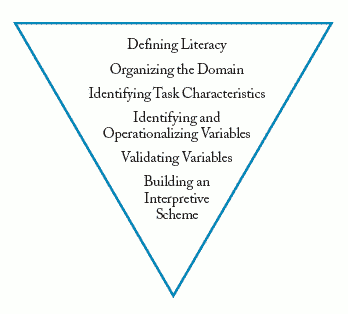2. Developing a framework
The task of the International ICT Literacy Panel was to develop a framework that would define ICT literacy and provide the foundation for the design and conduct of large-scale assessments and diagnostic tests. While the chief benefit of developing a framework for ICT literacy is improved measurement, a number of other potential benefits are also seen as important. Namely,
- A framework provides a common language and a vehicle for discussing the definition and assumptions surrounding the domain.
- Such a discussion provides a mechanism for building consensus around the framework and measurement goals that grow from it.
- We construct a better understanding of what is being measured through the process of developing the framework and linking it to evidence collected from assessment tasks.
- This understanding and its connection to what we say about learners provides an important link between public policy, assessment, and research which furthers the utility of the data that are collected.
To accomplish this task, the panel chose to adopt the process used to develop frameworks for the International Adult Literacy Survey (OECD and Statistics Canada 1995; OECD and Development and Human Resources Development Canada 1997; OECD and Statistics Canada 2000) and for the Reading Literacy Survey conducted as part of PISA, the Programme for International Student Assessment (OECD, 1999). This process consists of six steps, shown in the following diagram and explained more fully below (Kirsch 2001).
